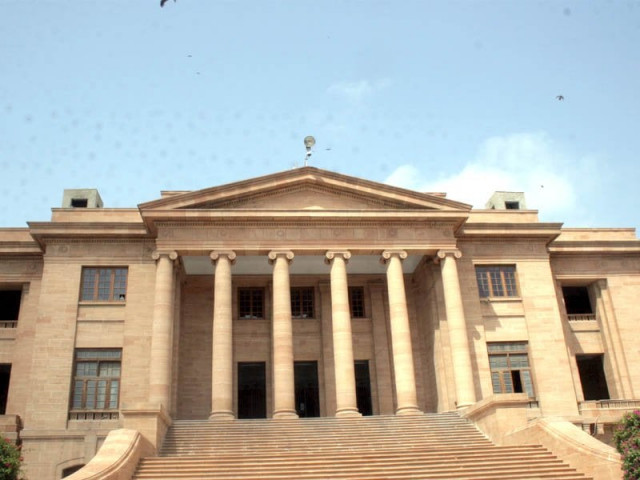All about the seat: SHC throws out plea against amendments to universities act
A VC wil not be able to hold the office for more than two terms following the enforcement of law.

Dr Shershah Syed and Dr Attaur Rehman had questioned Prof Khan’s authority to hold the office after amendment to the Dow University of Health and Sciences Act was made. PHOTO: EXPRESS/FILE
A division bench, comprising Justice Muhammad Ali Mazhar and Justice Shah Nawaz Tariq, passed this judgment, which was previously reserved on three identical petitions filed by Prof. Khan, Dr Shershah Syed and Dr Attaur Rehman.
Prof. Masood had approached the court and submitted that the Sindh government had promulgated the Sindh Universities Laws (Amendment) Act of 2013 through a notification issued on September 16, 2013. According to the new Act, the governor can appoint vice-chancellors of the universities on recommendations made by the chief minister of Sindh for a period of four years which could be extended by the chancellor.
His lawyer, Farogh Naseem, submitted that a vice chancellor, who had held the office for more than two terms, would cease to maintain his role following the enforcement of this law. He said that the new Act was malafide, unconstitutional and against Prof. Khan’s fundamental rights.
Dr Shershah Syed and Dr Attaur Rehman had questioned Prof. Khan’s authority to hold the office after amendment to the Dow University of Health and Sciences Act was made.
The judges observed that: “In the present case the legislation took notice of the unlimited term of the office of the VC so they have curtailed the tenure of the office for the two-terms only, which cannot be declared violative of any provision of the constitution.”
Advocate Haider Waheed, who was representing Dr Syed, argued that once the law was promulgated, Prof. Khan ceased to hold the office as VC but he still continues to sit in his chair and hold meetings of the syndicate. He said that due to such a long tenure of the VC, many other doctors who would be eligible for the position were suffering.
He also alleged that during his tenure Prof. Khan appointed a lot of his favourites and did not give credit to merit or procedure.
Advocate Zeeshan Adhi, who was representing Prof. Surgeon Dr Attaur Rehman, argued that there was no question of the past and close transactions, which should only be permitted when a matter is over and attained finality. When the statute was promulgated, he said, Prof, Khan continued to be the VC so this was an ongoing transaction and not a past one.
He argued that there was no question of any discrimination. By the virtue of amendment made to the Act, the maximum two-terms of the VC’s office were fixed at all universities and any person, who holds office for more than two-terms, shall cease to hold the office in view of the amendment.
In this case, he argued, that the legislature has acted within its powers so that law should be implemented in its letter and spirit.
The bench dismissed Prof. Khan’s petition, observing that it lacked merit and held that consequently he ceased to hold the office of the VC with immediate effect in view of the amendments to the Dow University of Health Sciences Act 2004. The bench also disposed of petition filed by Dr Rehman and Dr Syed along with the pending application.
Published in The Express Tribune, June 13th, 2014.


















COMMENTS
Comments are moderated and generally will be posted if they are on-topic and not abusive.
For more information, please see our Comments FAQ